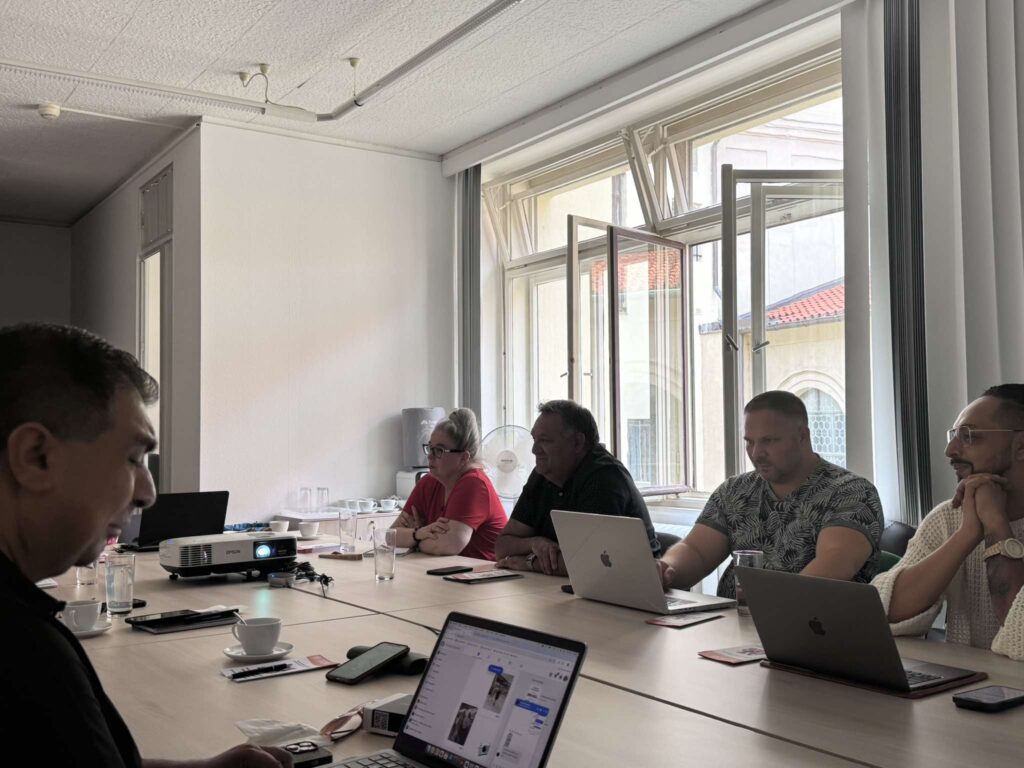REVISE AND ADVOCATE FOR IMPROVEMENTS TO THE NATIONAL ROMA INTEGRATION STRATEGY

This is an article presenting the project prepared by RomanoNet, Czechia, given the subgrants under the ERGO sub-granting scheme 2024, funded by the EU
The “Revise and Advocate for Improvements to the National Roma Integration Strategy” (NRIS) project, coordinated by RomanoNet, was a successful initiative conducted through a comprehensive and inclusive approach. It involved structured monthly meetings, ad-hoc working groups, and stakeholder consultations aimed at gathering input and refining the NRIS, with a strong emphasis on Roma inclusion and combating antigypsyism. Key activities included the development of policy briefs, targeted consultations, and strategic events that actively engaged Roma communities, civil society organisations, and policymakers at all levels.
The project focused on evidence-based revisions of the National Roma Integration Strategy (NRIS) through a series of dedicated round tables. These meetings tackled key areas of the strategy, including education, employment, housing, health, and the fight against antigypsyism. Each round table brought together a diverse group of stakeholders, ensuring that the revised strategy truly reflected the real needs and priorities of Roma communities. The report was written together with a government office.
The culmination of these efforts was the celebration of Roma Day on 17 December 2024, organised in partnership with the Office of the Roma Commissioner. This event provided a platform to present the updated strategy components and officially launch the Charter Against Antigypsyism, reinforcing a collective commitment to combating discrimination and advancing Roma inclusion.

Significant Accomplishments
One of the significant accomplishments of the project was the comprehensive revision of all major chapters of the National Roma Integration Strategy (NRIS). The project had a strong advocacy impact, as recommendations were presented to policymakers to strengthen the NRIS. A key focus was on tackling antigypsyism and enhancing Roma inclusion, ensuring that these critical issues were recognised and addressed at a strategic level.
Stakeholder engagement played a crucial role in the project’s success. By facilitating active participation from a diverse range of stakeholders, the initiative encouraged cross-sector collaboration, bringing together policymakers, civil society organisations, and Roma representatives.
A major milestone was the celebration of Roma Day, during which the Charter Against Antigypsyism was launched. The project prioritised capacity building within the Roma civil society. A series of workshops, consultations, and policy discussions were organised, equipping Roma organisations and activists with the knowledge and tools needed to advocate. RomanoNet ensured that advocacy efforts will continue, promoting policy changes based on the revised NRIS and Roma Day initiatives. By building on these achievements, RomanoNet aims to drive lasting change and strengthen Roma inclusion in Czechia.
For more information in Czech, click the buttons below.
If you have any further questions about this application, drop us an email at info@ergonetwork.org.











